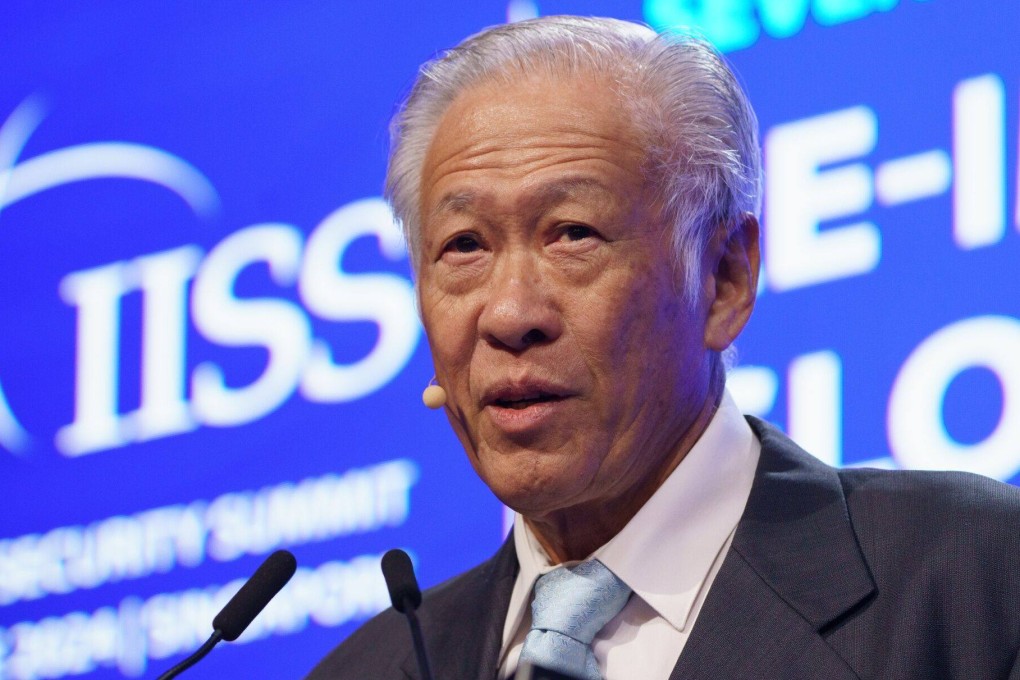Advertisement
China’s growing influence shapes talks at Singapore’s Shangri-La Dialogue, with spotlight on rules-based order
- The theme was laid out early at the security forum by the Philippines – before Australia, New Zealand and host Singapore took up the baton
- But the South China Sea wasn’t the only talking point. Cambodia’s Ream naval base, the crisis in Myanmar and North Korea also got a look in
Reading Time:4 minutes
Why you can trust SCMP
5

Su-Lin Tanin Singapore
China’s growing influence and ability to act as a peace broker took centre stage at this year’s Shangri-La Dialogue in Singapore, where regional leaders and defence chiefs also pushed for a renewed commitment to the global rules-based order.
Advertisement
Singapore’s Defence Minister Ng Eng Hen summed up the mood on Sunday, the final day of the three-day security forum, when he said the system of global governance in place since the end of World War II “guarantees the security and survival of large nations and small”.
He made the remarks while welcoming Ukrainian President Volodymyr Zelensky, whose surprise appearance at the event Ng said was “the epitome of what we are all hoping for: a rules-based order”.
This theme was laid out early on, with Philippine President Ferdinand Marcos Jnr calling in his keynote speech to the dialogue on Friday for efforts to resolve disputes in the South China Sea to be “anchored in international law” – emphasising a landmark 2016 arbitral ruling rejecting China’s claims, which Beijing does not recognise.
The Philippines and China have been embroiled in a series of altercations in the disputed waterway in recent months over their competing territorial claims.
Advertisement
New Zealand’s defence minister Judith Collins referred to “challenges in maritime sovereignty” in her remarks to a plenary session at the dialogue on Sunday.

Advertisement